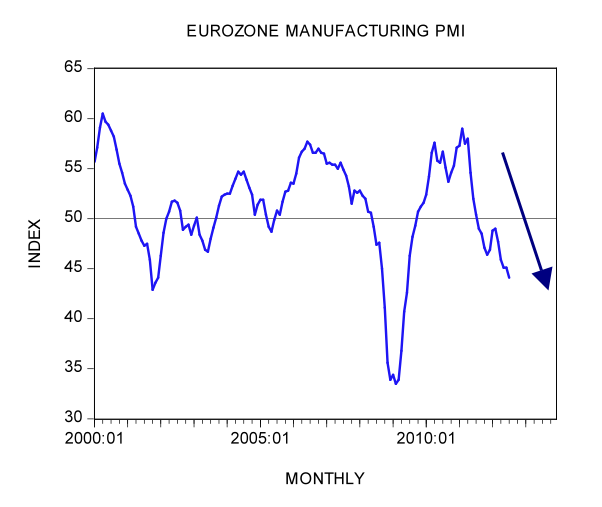One can read The Daily Mail for its coverage of the royal family, snapshots of British life, or, if you are like me, the headlines. On Saturday, guest contributor Ian Morris, Professor of History and Classics at Stanford University, served up this classic example:
The perils of the begging bowl: Exactly 100 years ago China was ‘rescued’ by European loans. The result was a century of misery. Now the boot is on the other foot.
Morris continues to explain that 100 years ago, in 1911, the last emperor of China had just been toppled. The newly formed Republic of China was penniless (yuanless?), and desperate for loans to keep it afloat. European investors, flush with cash in what was the still prosperous pre-World War I era, flocked to Beijing to make loans to keep the newborn country afloat.
Today the eastward journey continues, but it is not made by Europeans looking to invest their savings. It is instead European politicians looking to secure loans to keep their unsustainable experiments afloat for a little while longer. While this great European experiment with the welfare state is now obviously insolvent, an attitude remains that we are only in the midst of a liquidity crisis. This view is wrong. No amount of loans can save a country from a crisis of insolvency, as has proven to be the case in Greece recently.
A more important question to ask is whether Europeans should be seeking bailouts to keep the current system afloat.
The Republic of China, formed in 1912 supported by European funds gave way to The People’s Republic of China in 1949. The latter demonstrated itself to be the most despotic regime of the twentieth century. The impoverishment of citizens by other regimes, Nazi Germany or Soviet Russia, pale in comparison to the hardships endured by the hardworking Chinese over the last century.
Several centuries ago, China was the most prosperous nation on Earth, far exceeding even Europe in terms of wealth and technology. The Industrial Revolution changed this, but China still managed to maintain its competiveness, particularly by trading with the newly arriving European entrepreneurs as shipping improvements made trade between the continents increasingly possible during the 19th century.
The loss of the Emperor in 1911 set in motion the key steps that would place the nation’s future in the hands of its eventual tyrant leader, Chairman Mao. Funds provided by wealthy European investors fomented this shift, allowing freshly flailing regimes to secure a political foothold in the late teens and early 1920s.
One must ask, with the fortune of hindsight, whether such financing was beneficial. Fostering what would later become a tyrannically regime must surely be viewed with less than rose-coloured glasses today.
The European states may not seem tyrannical in comparison to China. The point is that they are examples of countries with failed policies. One must ask if searching for ways to continue these erroneous policies is beneficial for the Europeans that must live with them. Europeans with an eye for history need only look at a similar policy pursued 100 years ago for the answer.



A very similar article from Prof. Morris appeared on the BBC News site on the 7th:
http://www.bbc.co.uk/news/magazine-15619946
It’s interesting to compare the differences. The Daily Mail article says
whereas the BBC article says
Jin’s not wrong.